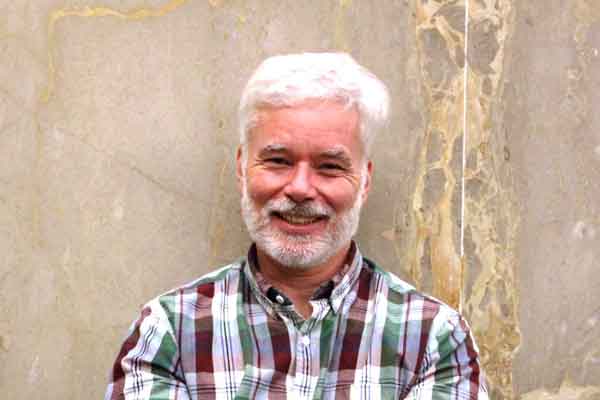A new report by AidData, a research lab at William & Mary, finds that leaders and citizens in the world’s poorest countries generally agree on the most pressing issues to be tackled within their nation — education, jobs, and strong institutions — as well as those issues they see as less important, including climate change, energy policy, and inequality (answer categories corresponding to the UN’s 17 Sustainable Development Goals). The findings come in part from a unique 2017 survey by AidData of nearly 3,500 leaders in 126 low- and middle-income countries.
“Lack of alignment between citizens, national leaders, and international donors is a serious hindrance to tackling global development issues,” said Samantha Custer, AidData’s Director of Policy Analysis and lead author of the upcoming Listening to Leaders 2018 report. Custer believes donors will see the biggest gains if they double down on financial and technical aid in those areas where citizen, leader, and donor priorities converge.
The researchers found points of difference: leaders view addressing environmental issues or strengthening infrastructure and industry as higher priorities than do their citizens, while publics are much more concerned with food security — one of their top five priorities — than their leaders, who rated this among the least important issues to address.
Leader priorities tend to evolve as countries become wealthier, moving up to middle-income status from low-income. Low-income economies are defined as those with a GNI per capita, calculated using the World Bank Atlas method, of $1,025 or less in USD 2015; lower-middle-income economies are those with a GNI per capita between $1,026 and $4,035. Not surprisingly, AidData’s analysis finds leaders in low-income countries are more likely to prioritize basic public services (e.g., health, water, food) than those in middle-income countries.
“There is general agreement that the most critical issues are those that, if solved, offer near-term, tangible benefits, like education and jobs,” said Custer. “Both citizens and leaders assign less importance to less tangible problems with longer time horizons, such as climate change or energy policy.”
The findings are the result of AidData’s mash-up and analysis of three separate data sources: AidData’s 2017 Listening to Leaders Survey of policymakers and stakeholders in 126 low- and middle-income countries; the UN’s MY World Survey of 10 million people from across the globe; and donors’ revealed priorities according to where they committed aid (in the form of Official Development Assistance) between 2000 and 2013.
Overall, government officials are relatively more optimistic than the other domestic stakeholders surveyed (civil society leaders, private sector, etc.) regarding their country’s development progress. Of note, civil society leaders were the only stakeholder group to select “gender equality” among their top five priorities.
The researchers found that leaders and citizens in sub-Saharan Africa — the poorest region — are the most closely aligned. The two regions where citizens and leaders are most out of step with each other are Latin America and the Caribbean, and Europe and Central Asia. In both regions, the greatest points of divergence are over food security and access to water (emphasized by citizens) versus industry/infrastructure (emphasized by leaders). East Asia and the Pacific is the only region in which leaders are more concerned about climate change than their citizens by a large margin. Meanwhile, leaders place substantially more emphasis than their citizens on environmental concerns in sub-Saharan Africa, as well as the Middle East and North Africa.
Globally, leaders most frequently cite “quality education” (61 percent), “decent work and economic growth” (55 percent), and “peace, justice, and strong institutions” (55 percent) as priority areas for their countries to tackle. In a breakdown across all stakeholder groups and regions, leaders consistently identify these three goals among their top three priorities.
Custer warns that while survey questions necessarily ask about individual goals, policymakers likely see them as interconnected. “Leaders do not necessarily see individual development priorities as ends in and of themselves. For example, strong educational systems may increase employment, earnings, and health for individuals, as well as strengthen institutions, and social cohesion more broadly. Similarly, the salience of “peace, justice, and strong institutions” as a stated priority among private sector leaders surveyed may reflect their belief that stable institutions and a strong judicial system contribute to an enabling environment for business.”
While a small sub-sample in the 2017 Listening to Leaders survey, it is the private sector that gives development partners the highest marks when it comes to influencing domestic priorities and helping in the actual implementation of reforms.
When asked why they perceived certain donors to be influential or helpful, access to resources — money — is top of the list for survey respondents. While financial and material contributions rank first (37 percent), leaders also attribute influence to donors who enable them to tap into additional human capital, such as through international experts (25 percent). These findings were reinforced in open-ended responses to a subsequent question that asked respondents to state what would make development partners more helpful. Many also expressed the need for donors to invest more in advocacy and communication, and coordinate better with other stakeholders in the country.
Notably, leaders want development partners to align efforts and resources with their country’s national development strategy (28 percent).

